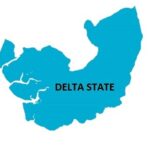Hajia Aisha Dahir-Umar is the acting Director General of the National Pension Commission (PenCom). In this exclusive interview with Daily Trust, she says infrastructure investments through pension funds have grown by over 600 per cent, from N2.23 billion in January, 2017, to N16.07 billion as at August 31, 2018.
What has been your experience running PenCom since assumed office as its acting Director General?
Since assumption of duty as acting director general in April, 2017, we have remained focused on the commission’s key priorities which are aimed at improving the Nigerian pension landscape. We have been able to accomplish some major initiatives. For instance, we have implemented, for the first time, pension enhancement for retirees of the CPS under the programmed withdrawal arrangement. The enhancement was possible due to the accrued investment income on the Retirement Savings Account (RSA) balances of retirees.
Also, we commenced the implementation of the multi-fund structure and a reduction in the asset-based fees charged on pension funds.
In terms of the strategic objective of expanding coverage of the CPS, we are set to introduce the Micro Pension Plan (MPP) in January 2019. The MPP is aimed at providing pension services to underserved informal sector workers. This follows the recent approval of the Micro Pension Guidelines by the Federal Government.
The commission has improved its collaboration with its major stakeholders, including labour, employers, the National Assembly, other financial sector regulators, among others. The resultant effect has been a greater understanding of the need to sustain the CPS as attested by the outcome of the public hearings on pensions conducted in 2017.
As a regulatory body, how is PenCom trying to ensure that services being offered by PFAs are seamless, corruption-free and satisfactory to RSA holders?
The need for improved service delivery by PFAs is of paramount importance to the commission. This is because the overall success of the pension reform is largely dependent on effective and efficient customer service delivery by PFAs. The commission has zero tolerance for corruption-related issues and put out a press release to that effect some time ago.
The commission has recognised the need for a holistic approach to make pension administration transparent, seamless and corruption-free and has taken the following steps: conducting routine examination to review the activities of the licensed pension operators with emphasis on ensuring that they increase the number of facilities available to Retirement Savings Account (RSA) holders, including internet services, phones and walk-in booths to facilitate access; develop proper infrastructure to improve business processes and turnaround time (processing of RSA application and benefit payment request), conduct periodic customer and retiree sensitisation forums; ensure that only those who meet the fit and proper persons due diligence requirements of the commission are employed as members of the board and top management of licensed PFAs.
Why has the micro pension scheme not taken off?
The framework and guidelines for the Micro Pension Plan (MPP) have been approved by the Federal Government and hosted on the commission’s website. The commission is currently optimising the necessary information technology infrastructure/platform required for hitch-free registration of contributors and contribution collection. The commission is collaborating with relevant regulatory agencies for a smooth take-off of the plan which is proposed for launch in January 2019.
What is your general assessment of the implementation of the Contributory Pension Scheme (CPS) in terms of shedding of backlog of unpaid pensions over the years, growth in pension assets under-management, number of participants in the scheme and so on?
The number of participants in the CPS has grown over the years; from its commencement of registration in February, 2006, to the third quarter of 2018, as the number of contributors stood at 8.27 million. The number of contributors from the private sector is 4.69 million (being 56.72 per cent), while the public sector has 3.58 million contributors. The value of pension fund assets under-management has grown from N265bn in 2006, which was the year of actual commencement of investment activities by the pension operators, to N8.33tn as at the end of August, 2018. As for payment of accrued pension right, cumulatively, N689.15bn was paid as the Accrued Pension Right (APR) for retirees from July, 2007, to date.
What is your take on the recent move in the National Assembly to review the pension law to allow contributors take up to 75 per cent of their savings as lump sum at retirement?
The move would have defeated the whole essence and concept of pension, as well as objectives of the Pension Reform Act, 2014. The pension scheme is supposed to provide a periodic regular income at retirement to mitigate against old age and poverty. However, allowing contributors to take up to 75 per cent will mean a lot of retirees will not have enough to be able to enjoy pension at retirement.
Based on the outcome of the public hearing at the National Assembly, it appears that most stakeholders have realised that the proposed amendment will not be in the best interest of the retirees.
Analysis of the implementation of the CPS at sub-national levels shows high level of apathy which some experts blame on the limited powers of PenCom to enforce compliance at the state level. Is this true, and what is the way forward?
One of the key intents and purposes of the Pension Reform Act 2014 is to ensure the domestication of the CPS at the sub-national. This motivation is enshrined in Section 2(1) of the PRA 2014 which makes the provisions of the act applicable to any employment in the public service of the federation, the Federal Capital Territory, the states and local government councils, as well as the private sector.
However, by virtue of the provisions of Section 210 of the Constitution of the Federal Republic of Nigeria 1999 (as amended), the right of a person in the public service of a state to receive pension or gratuity shall be regulated by law. This, therefore, implies that federating units are at liberty to legislate on the domestication of the CPS within their various jurisdictions. Pursuant to this constitutional provision, therefore, 24 states have enacted laws on the CPS. The enactment of these laws which are substantially in tandem with the provisions of the PRA 2014 is the first major step towards the domestication of the CPS at the sub-national level. In addition, six states have drafted CPS bills and are undergoing the legislative processes towards their passage into law. On the other hand, three states have embarked on pension reform, but chose not to adopt the CPS, while one has elected to continue with the Defined Benefit Scheme (DBS).
Interestingly, the commission’s regulatory oversight of states and local government pension schemes is guided by the provisions of the enabling laws in the states. In recognition of the foregoing, Section 23(h) of the PRA 2014 clearly emphasises that the commission’s role with regards to the application of the CPS at the state and local government levels shall be to promote and offer technical assistance to states in line with the objectives of the scheme.
The commission recently introduced the multi-fund structure to guide investment of pension funds. What informed the development?
The regulation on investment of pension fund assets is a dynamic one that is usually reviewed to align with developments in the financial market for the ultimate benefit of contributors. The multi-fund structure for RSA funds, otherwise known as Life Cycle Investment Structure, was conceived to align contributors’ risk appetite with their investment horizon at each stage of their life cycle. The main objectives of the multi-fund structure are to achieve optimum returns for contributors by aligning their pension savings with their individual risk/return profiles; provide investment portfolio choices to contributors based on stipulated guidelines; and enhance safety of pension assets through adequate portfolio diversification and increased investment in growth or alternative assets such as quoted equities, private equity, infrastructure and housing-related investible products.
There have been calls for the utilisation of pension funds for infrastructure development and PenCom came up with guidelines on investing pension funds on infrastructure. How is it going?
The commission amended the investment regulation in 2010 and introduced infrastructure as an approved asset class. However, this move did not immediately translate into investments in infrastructure by PFAs due to limited availability of investible infrastructure products that meet the minimum criteria for pension fund investment. The commission sought to address this by actively engaging stakeholders in the capital market to facilitate the development of these investible products/instruments and other necessary conditions to encourage pension fund investments in infrastructure, that is credit enhancement mechanisms. For instance, the commission actively supported the establishment of Infrastructure Credit Guarantee Company Limited (InfraCredit) which provides local currency guarantees to enhance the credit quality of debt instruments issued to finance infrastructure assets in Nigeria. The company had provided credit guarantee for an infrastructure bond issued by Viathan Funding Plc. in December, 2017, with pension funds subscribing for over 70 per cent of the issuance. These efforts are gradually bearing fruits as infrastructure investments by pension funds have grown by over 600 per cent, from N2.23bn in January, 2017, to N16.07bn as at August 31, 2018.




